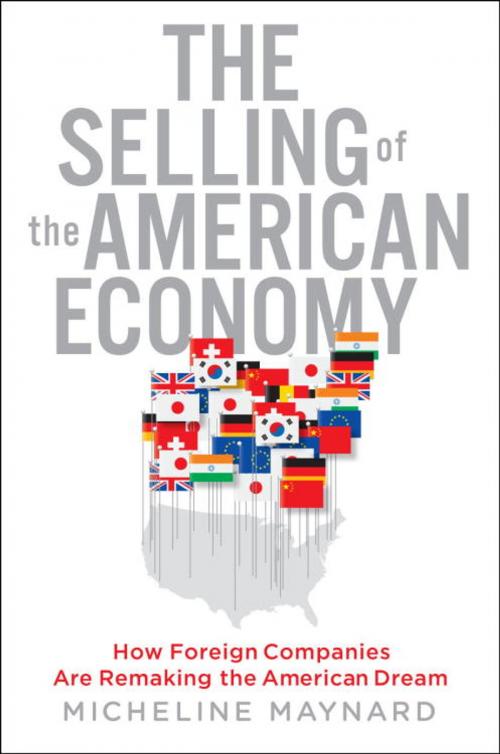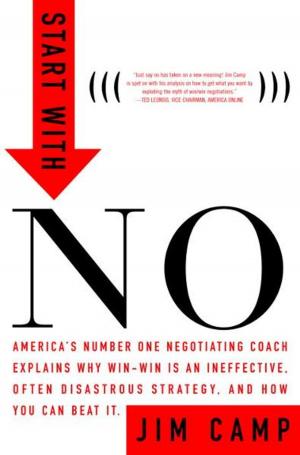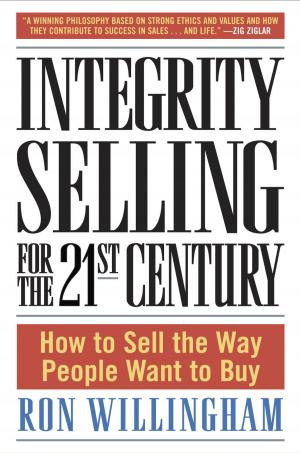The Selling of the American Economy
How Foreign Companies Are Remaking the American Dream
Business & Finance, Economics, International Economics| Author: | Micheline Maynard | ISBN: | 9780307589439 |
| Publisher: | The Crown Publishing Group | Publication: | October 20, 2009 |
| Imprint: | Crown Business | Language: | English |
| Author: | Micheline Maynard |
| ISBN: | 9780307589439 |
| Publisher: | The Crown Publishing Group |
| Publication: | October 20, 2009 |
| Imprint: | Crown Business |
| Language: | English |
Today, many Americans regard globalization as a significant threat to our work force, and to our very way of life. As unemployment soars, the American automotive and manufacturing industries crumble, countless jobs continue to ship overseas, and the retail sector faces the worst slump in decades, cries of “Buy American” have grown louder and louder - in our communities, in the headlines, and in the halls of Washington. But at a time when an Italian company has bailed out one of our oldest and most iconic automakers; a French-German consortium is closing in on a multibillion dollar military contract to build our tanker planes and helicopters; companies based everywhere from Switzerland to India to Belgium are stocking our grocery aisles; and the assets of some of our most venerable financial institutions have been stripped down and bought up by banks from Hong Kong and London, what does “Buy American” mean any more?
That said, there is a great deal of discomfort about the influence that foreign companies are exerting on our economy. Are they making us more competitive in the global marketplace, or less? Are they creating jobs for Americans, or importing their own workforces? Are they a threat to our national security, or are they bringing us technology that actually makes us safer? When they open plants and factories on our shores, are they siphoning money from our economy, or bolstering it? In welcoming their investments, are we, as some critics contend, selling our economy to the highest bidder?
In THE SELLING OF THE AMERICAN ECONOMY, New York Times senior business correspondent Micheline Maynard argues that despite the lingering xenophobia that colors American perception of foreign-owned companies, foreign investments are actually an overwhelmingly positive force. Not only do they create thousands of jobs and pump billions of dollars into national and local economies, she says, they reinvigorate and strengthen communities, foster innovation and diversity in the marketplace, and teach Americans new ways to live and work.
At a time when our most cherished home-grown institutions, still reeling from the financial crisis, are downsizing, shuttering plants and factories, and filing for bankruptcy, the need for foreign investment has never been greater. In this compelling narrative, Maynard shows that if we are in fact selling our economy to the highest bidder, this may be very good news for America.
Through moving stories of workers whose lives have been transformed by the arrival of companies like Toyota, Airbus, and Tata, probing interviews with a host of government officials and local leaders who have fought to lure foreign companies to their communities and states, and revealing conversations with both American and foreign executives (including a rare and hard-won visit with Toyota’s elusive young new president) Maynard paints a fascinating portrait of the paradigm shift that is transforming the American economy - and remaking the American dream.
Today, many Americans regard globalization as a significant threat to our work force, and to our very way of life. As unemployment soars, the American automotive and manufacturing industries crumble, countless jobs continue to ship overseas, and the retail sector faces the worst slump in decades, cries of “Buy American” have grown louder and louder - in our communities, in the headlines, and in the halls of Washington. But at a time when an Italian company has bailed out one of our oldest and most iconic automakers; a French-German consortium is closing in on a multibillion dollar military contract to build our tanker planes and helicopters; companies based everywhere from Switzerland to India to Belgium are stocking our grocery aisles; and the assets of some of our most venerable financial institutions have been stripped down and bought up by banks from Hong Kong and London, what does “Buy American” mean any more?
That said, there is a great deal of discomfort about the influence that foreign companies are exerting on our economy. Are they making us more competitive in the global marketplace, or less? Are they creating jobs for Americans, or importing their own workforces? Are they a threat to our national security, or are they bringing us technology that actually makes us safer? When they open plants and factories on our shores, are they siphoning money from our economy, or bolstering it? In welcoming their investments, are we, as some critics contend, selling our economy to the highest bidder?
In THE SELLING OF THE AMERICAN ECONOMY, New York Times senior business correspondent Micheline Maynard argues that despite the lingering xenophobia that colors American perception of foreign-owned companies, foreign investments are actually an overwhelmingly positive force. Not only do they create thousands of jobs and pump billions of dollars into national and local economies, she says, they reinvigorate and strengthen communities, foster innovation and diversity in the marketplace, and teach Americans new ways to live and work.
At a time when our most cherished home-grown institutions, still reeling from the financial crisis, are downsizing, shuttering plants and factories, and filing for bankruptcy, the need for foreign investment has never been greater. In this compelling narrative, Maynard shows that if we are in fact selling our economy to the highest bidder, this may be very good news for America.
Through moving stories of workers whose lives have been transformed by the arrival of companies like Toyota, Airbus, and Tata, probing interviews with a host of government officials and local leaders who have fought to lure foreign companies to their communities and states, and revealing conversations with both American and foreign executives (including a rare and hard-won visit with Toyota’s elusive young new president) Maynard paints a fascinating portrait of the paradigm shift that is transforming the American economy - and remaking the American dream.















